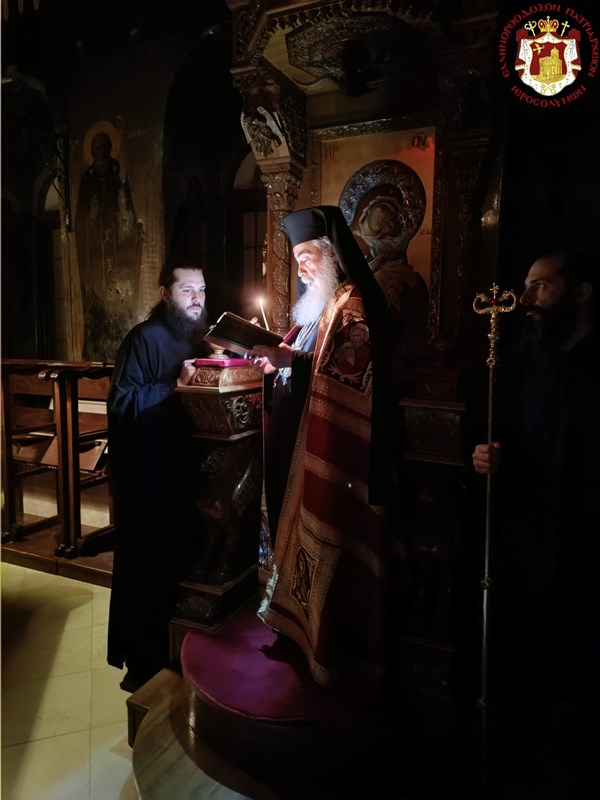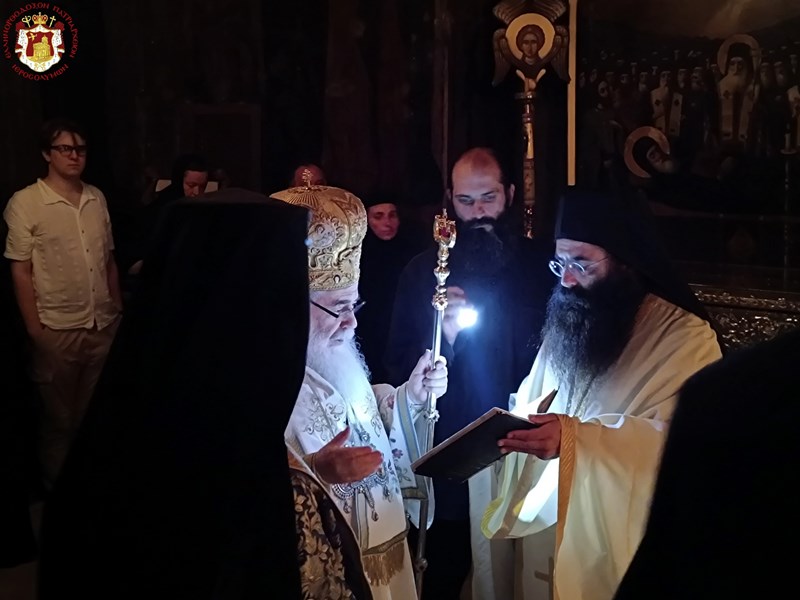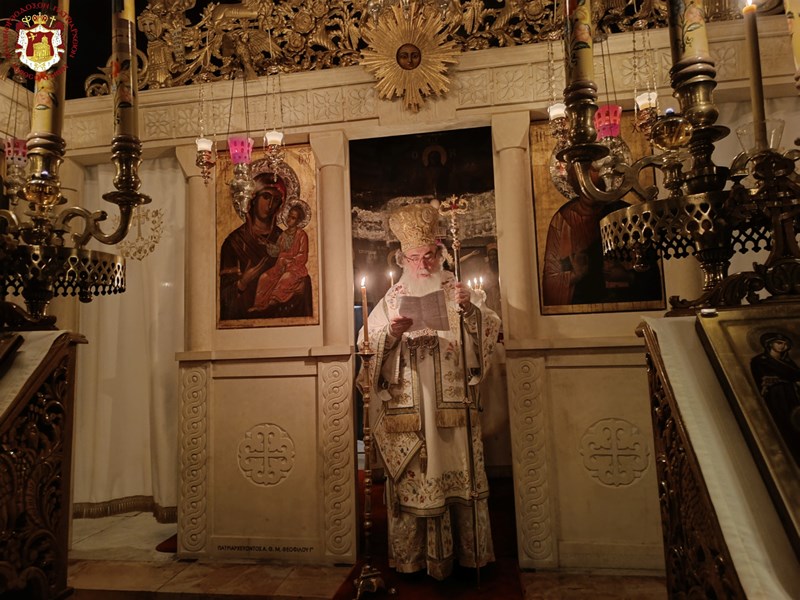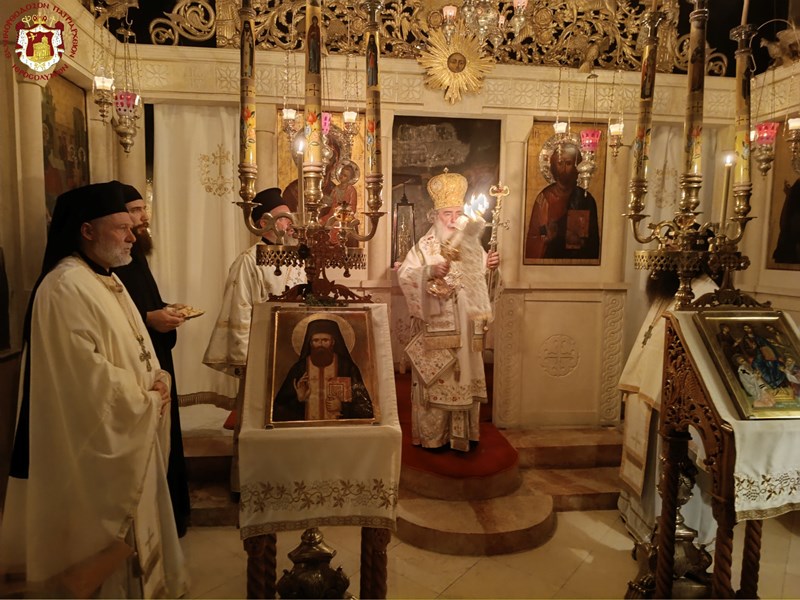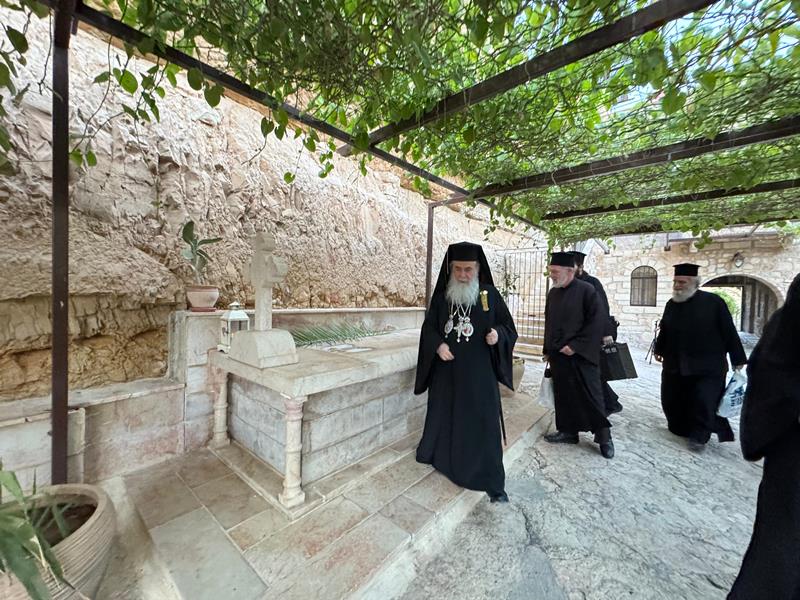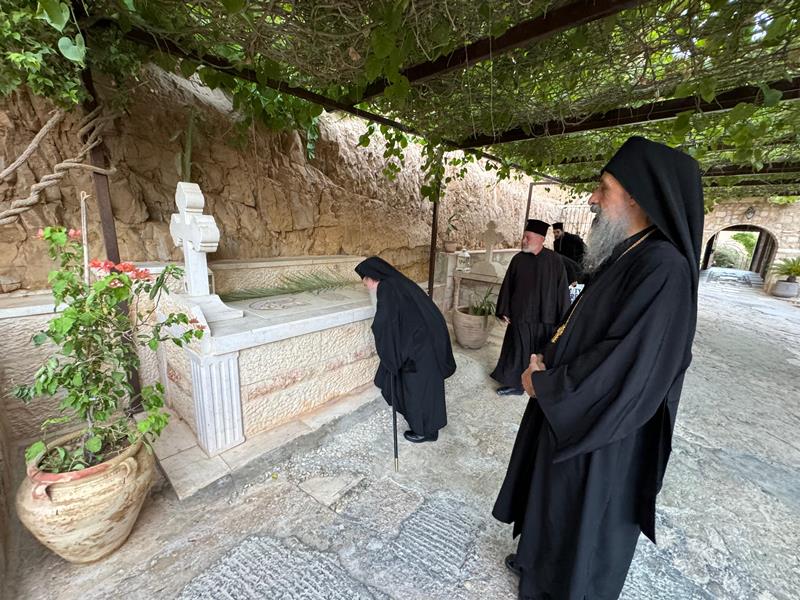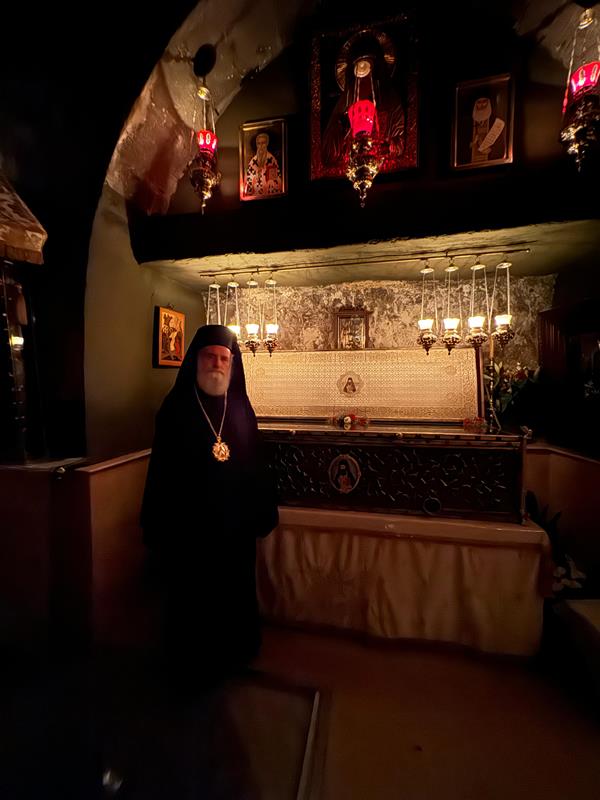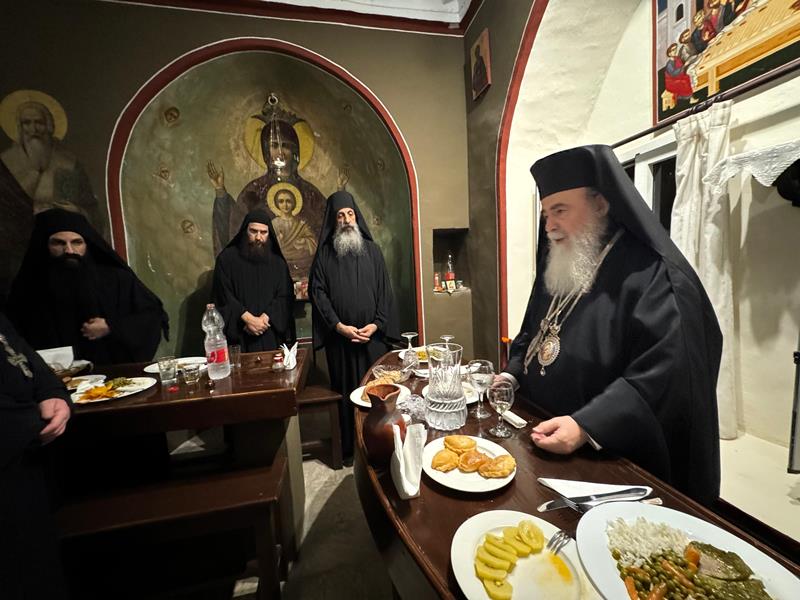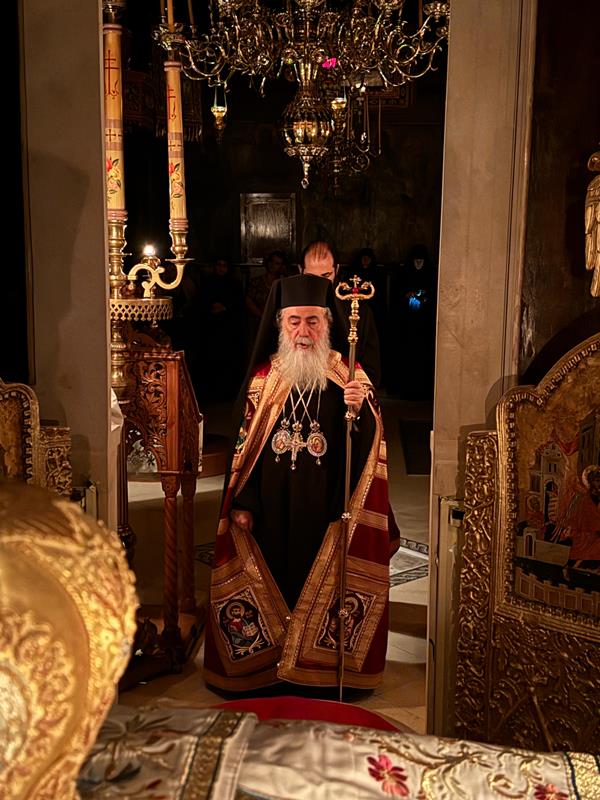On Saturday, August 10, 2024, the commemoration of Saint John the New Hosavite from Romania was celebrated in the Patriarchate of Jerusalem.
This feast was celebrated in the monastery of his penitence, Saints George and John the Hosevite.
He came here from the Neamt Monastery in Romania. He lived since the middle of the 20th century, as well as in other monasteries in the Jordan region, and mainly in the area of the Hermitage of the Assumption of Saint Anne, near the monastery of the Hosevites George and John, before being ordained a deacon and priest in the Holy and Life-Giving Sepulchre.
He lived in extreme silence, fasting and humility. Educated and with an excellent knowledge of theology, he translated many of his father’s writings into Romanian and composed liturgical poems, as he was also gifted with the gift of prophecy. On July 28, 1980, his holy relics, which were found intact, were transferred from the Hermitage of Saint Anne to the Holy Monastery of Hoseva with the patriarchal blessing of the Patriarch of Jerusalem Benedictus. For this reason, July 28 was designated as the day of his commemoration. The Church of Jerusalem included him in its canon of saints on January 18/31, 2016.
In his memory, a vigil was held all night long, presided over by Patriarch Theophilus of Jerusalem. Participants were Metropolitan Hesychios of Capitolias, the Archimandrites of the Holy Sepulchre, led by the Master of Ceremonies Archimandrite Bartholomew, Archimandrite Christodoulos, Hieromonk Chrysogonos, Archdeacon Mark and Hierodecon Dositheos.
The Secretary of the Holy Synod, Hierodeacon Simeon, and the monks of the monastery led the chant. Some believers from Jerusalem and monks took part.
Before Holy Communion, the Patriarch proclaimed the Word of God as follows:
“God is to be feared in the assembly of the saints, and all who surround him must fear him” (Psalm 89:7), proclaims the Psalmist.
Dear Holy Fathers and Brothers in Christ,
Reverend Christians
The Lord God of hosts (Psalm 89:8) has gathered us all in this holy monastery of Hozeva by the Chorath brook near the Jordan, where the “man of God”, the prophet Elijah, was hiding, to celebrate among the saints the holy memory of our father John the New Hozevite from Romania.
Even at a young age, John prayed to God with the psalm: “Show me your ways, O Lord, and teach me your paths. Lead me in your truth and teach me. For you are the God of my salvation; in you I wait all day long” (Psalm 25:4-5).
In fact, our father John endured sorrow and tribulation all day and all the days of his life for his salvation, and he did so with great patience, as Saint Paul says: “Affliction produces endurance, and endurance produces experience, and experience produces hope. And hope does not put us to shame, because the love of God has been poured out in our hearts through the Holy Spirit who has been given to us” (Romans 5:3-5).
The humble John’s exuberant love and divine zeal for God led his steps to this desert but blessed region of the Jordan in Hozeva, where the Lord revealed to him His ways and paths, that is, the commandments and all things that please Him and through which, according to Zigavinos, one inevitably attains Heaven.
As is known, the Lavra of Hozeva became a workshop of salvation and a ladder of Christ’s virtues leading to the Kingdom of Heaven. This is because in this Lavra, among a multitude of holy martyrs and saints, the great ascetics and teachers of Christ, George and John of Hozeva, were distinguished, the latter also becoming the bishop of Caesarea in Cappadocia.
The incorruptible and fragrant relics of Saint John are an irrefutable testimony that indeed “the love of God has been poured out in our hearts through the Holy Spirit who has been given to us” (Romans 5:5). According to the interpreter Zigavinos, Saint Paul “calls the Holy Spirit ‘the love of God’… as proof of God’s love for us” and according to the holy Evangelist John, “perfect love drives out fear, because fear brings torment. He who fears is not perfect in love” (1 John 4:18).
This is the great importance of baptism and the gift of the seal of the Holy Spirit. “… as many of us as were baptized into Jesus Christ were baptized into his death” (Romans 6:3), preaches Saint Paul. See then why the love of God, that is, the Holy Spirit, drives out fear, especially the fear of corruption and sin.
It is noteworthy that Saint John was not only a strict ascetic, but also a minister of the mystical blessing, the mystery of the Holy Eucharist, through which, by the grace of God, we become communion recipients of the Body and Blood of our God and Saviour Christ. We say this because, according to Saint Cyril of Alexandria,
“In the mystery of the Holy Eucharist, Christ reveals himself and inspires us all, both visibly and invisibly; invisible as God and visible in the body. He also allows his saints to touch his sacred flesh.”Saint John also received the revelation of the Holy Spirit, through whom he received the gift of healing (cf. 1 Cor 12:7-9), which is brought about by the power of the Holy Spirit. This is why the memory of our holy father John shines like the sun in the whole world ruled by “natural men” who have given themselves over to evil spirits (cf. John 3:15). “But the natural man does not accept anything that comes from the Spirit of God; it is foolishness to him, and he cannot understand it, because it is judged by the Spirit” (1 Cor 3:14), preaches Saint Paul.
Today’s commemoration of Saint John in this holy place of Hozeva lets the joyful light of Christ’s peace shine. And we say this because, according to Saint Paul, “God does not create disorder but creates peace” (1 Cor 14:33).
We want to implore this ray of light of the Hozeva Monastery and the Jordan District, the shining star of the Church, in the name of the Most Blessed Theotokos, to be a faithful protector for the salvation of our souls and bodies, so that “the peace of God, which surpasses all understanding, may guard your hearts and your minds in Christ Jesus” (Philippians 4:7). Amen. Many happy and peaceful returnees!”
After the vigil, a meal was offered as refreshment after the hardships of vigil and the heat of the desert.
